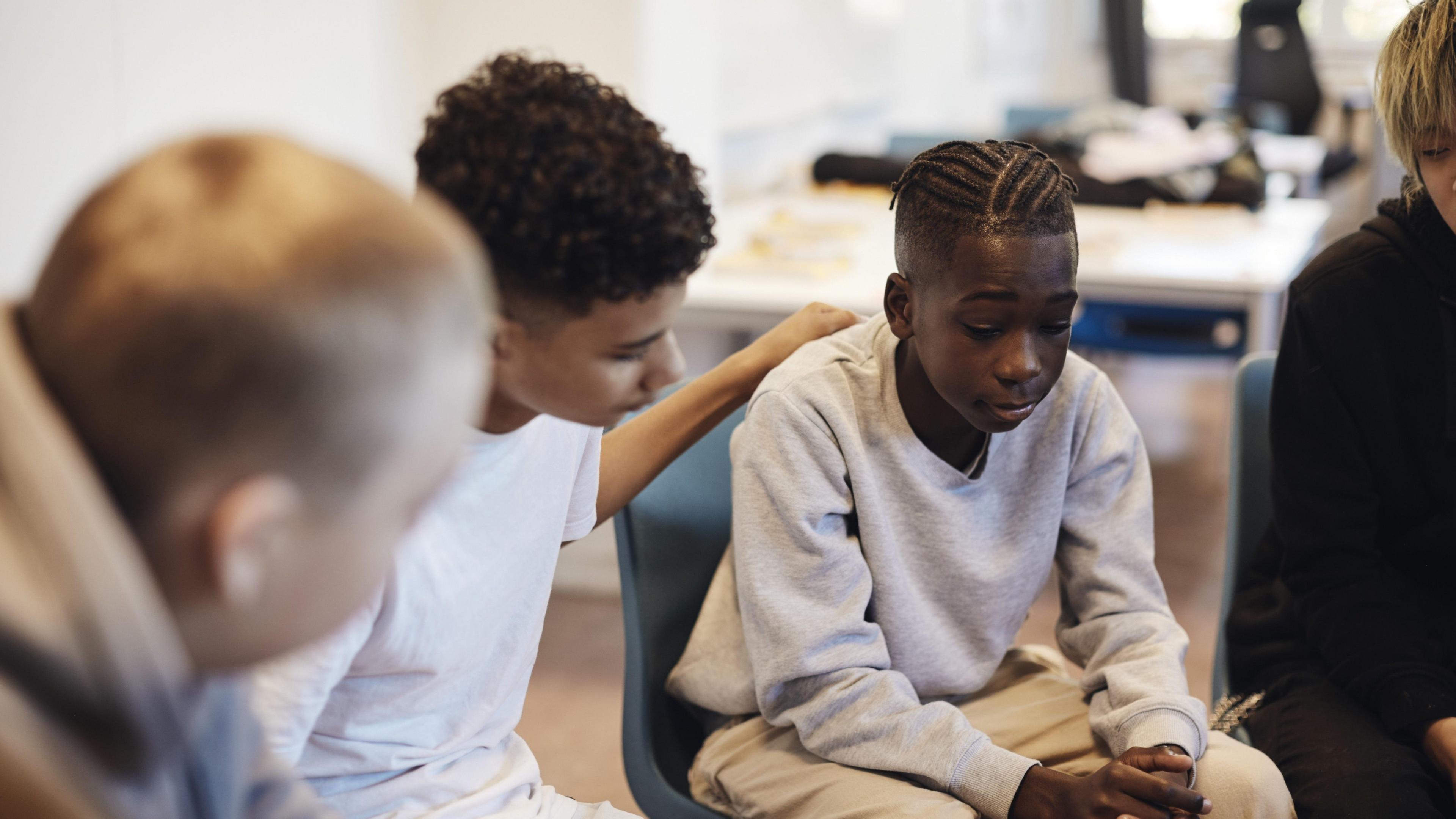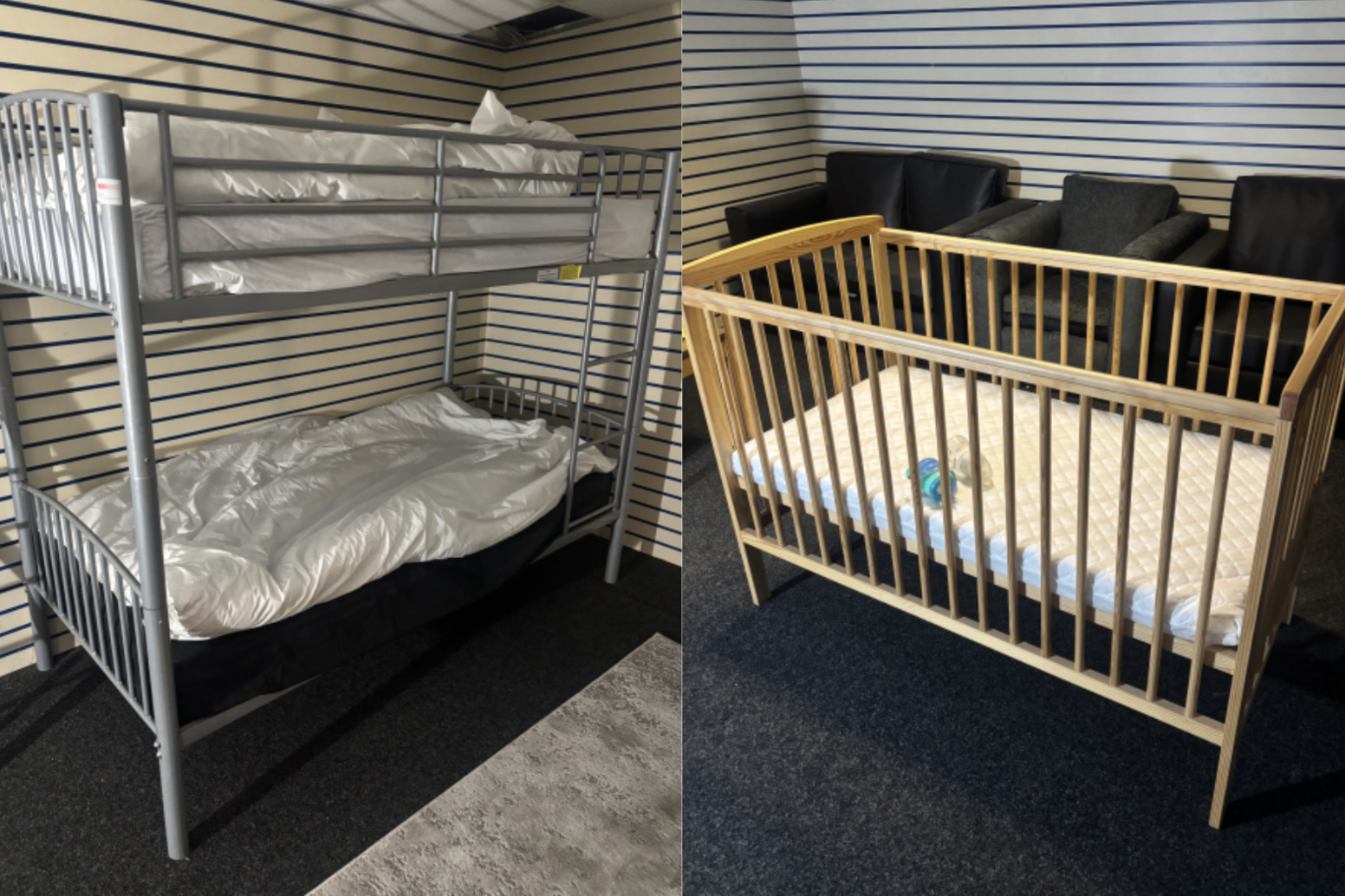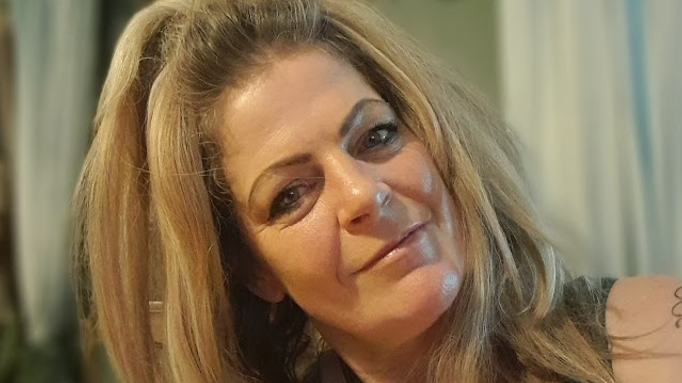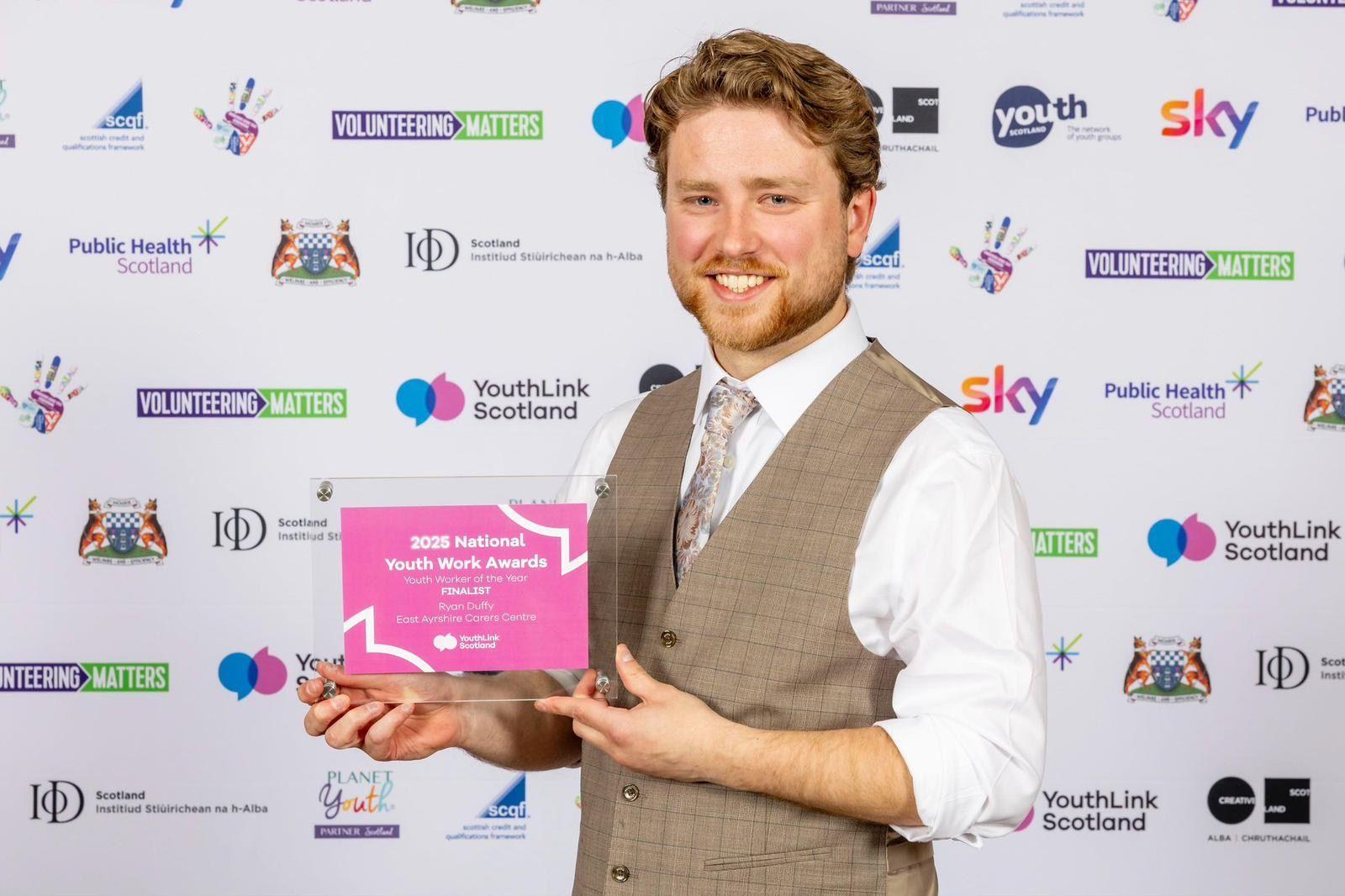'My kids were left with no beds when we were rehomed'

Charities are highlighting the challenges children face today
- Published
Children in the UK face challenges such as poverty, unpaid care work and domestic abuse. As the UK government prepares to announce its Budget later this month, charities say these children need more support.
Sarah and her five children had been living in a cramped, mouldy two-bedroom house when they became homeless last year.
The three younger children and Sarah (not her real name) were placed in a hostel, separated from her two oldest boys.
It took nearly two years for the family to be rehomed and reunited, but they had almost no belongings or furniture when it finally happened.
"The happiness of having the children back, all together, is a feeling I will never take for granted again," Sarah says.
"However, we had to start over."
A referral to the charity Family Fund's Emergency Essential programme meant the children were given new mattresses and bedding instead of having to share.
"Since they've had their own places to sleep, the difference in the kids is just amazing," she adds.
"They're healthier, getting along better – and it's massively helped me too."
Family Fund supports low-income families or those raising disabled or seriously ill children across the UK.
It uses BBC Children in Need funding to provide emergency items like beds, white goods and pushchairs to families in crisis.

Some of the beds available through Emergency Essentials
Beds are one of the most commonly requested items.
Last year, the charity Barnardo's reported that about a million children in the UK lacked a safe, comfortable bed.
In eight years, Family Fund has distributed more than 130,000 items, aiming for families to wait at most seven days between being referred and receiving a grant.
Emma Walton, a referral engagement worker with Emergency Essentials, said the families they supported faced a second crisis in addition to financial hardship.
She explained homelessness had overtaken domestic abuse as the most common reason for referrals to its service in the past two years.
Mental illness and disability were also frequently cited.
She added: "Every single application we get in will comment about the cost of living crisis."
"It's deepening poverty for those that are already struggling."
Government data shows 71% of children in Tower Hamlets live in income deprived households - those with an income below 70% of the national median average after housing costs - the highest level for any English local authority.
Executive mayor of Tower Hamlets, Lutfur Rahman, said the council had introduced "unprecedented levels of investment" to tackle poverty and inequality.
He added it was the first council in England to introduce universal free school meals and school uniform grants for families earning up to £50,350.
He argued housing played a "critical role" in shaping life chances, calling it a "cornerstone" of the council's strategy.
Minister for Local Government and Homelessness Alison McGovern called the deprivation statistics "a damning indictment of a system that has left some communities broken".
She added: "We are tackling the root causes of deprivation head on, investing £500m in children's development, extending free school meals and ensuring the poorest don't go hungry in the holidays through a new £1bn crisis support package to restore prosperity across the UK."
'Breaking the cycle'
Although homelessness has become the main reason for referral to Emergency Essentials, domestic abuse is a significant contributor.
The latest Crime Survey for England and Wales estimated that where people aged 16-59 reported experiencing domestic abuse, 32% said there was a child living in the house.
Jay Ryan from Cyfannol Women's Aid, which covers Blaenau Gwent, Caerphilly, Monmouthshire, Newport, Torfaen and the wider Gwent area in Wales, leads a mentoring programme, funded by Children in Need.
It supports boys aged six to 16 who have experienced domestic violence.
"It's about completely breaking the cycle," she says, adding the boys often have negative views of adults.
"Some of them can be really anxious. They're really scared to leave mum's side.
"Then you get the other side where they can be quite aggressive towards women.
"Inside they are just really lost, scared little boys."

Jay Ryan works with young boys who have experienced domestic abuse
Jay and other mentors take the boys into woodland settings, using survival skills to help them talk about how they're feeling, trust others and learn about relationships.
"They've been through a lot of trauma and turmoil," she says.
But - she says - they come back much stronger.
"It's a bit like a snowdrop, like a bulb that's coming through the winter and flourishing," she adds.
Kerrie Flood, the interim CEO at Northern Ireland's Fermanagh Women's Aid, said their work showed there was hope for children going through challenging times.
"Domestic abuse thrives on isolation and secrecy," she says.
"There isn't a specific postcode, there's not a particular profile.
"All it takes is for someone in the room to notice, to offer help and to refer into a service that can support the young person."
Five-year-old carers
Thousands of UK children are young carers, who look after a family member, neighbour or friend as unpaid work.
That can include cooking, cleaning, managing household finances and providing emotional support, as well as physical care like bathing or administering medication.
The 2021 Census reported at least 120,000 young carers in England and Wales and, in 2022, it was estimated there were 28,000 in Scotland.
Ryan Duffy, East Ayrshire Carers' young carers development manager, oversees the service which provides one-to-one help, advocacy and whole family support to young carers.
"Because they have so much extra responsibility, they often miss out on childhood experiences" said Ryan.
"It can be quite isolating."

Ryan Duffy works with young carers
Ryan added that most young carers are "proud of what they do" but "it can be hard when people don't fully understand the situation and they could use more support".
"I think people can't understand someone as young as five looking after someone ... but they're providing care, making dinner, reminding the person to take medication."
An East Ayrshire Council spokesperson said the council had invested in initiatives with a specific focus on child poverty, adding that East Ayrshire Carers provides wonderful support.
Additional reporting by Ema Sabljak.